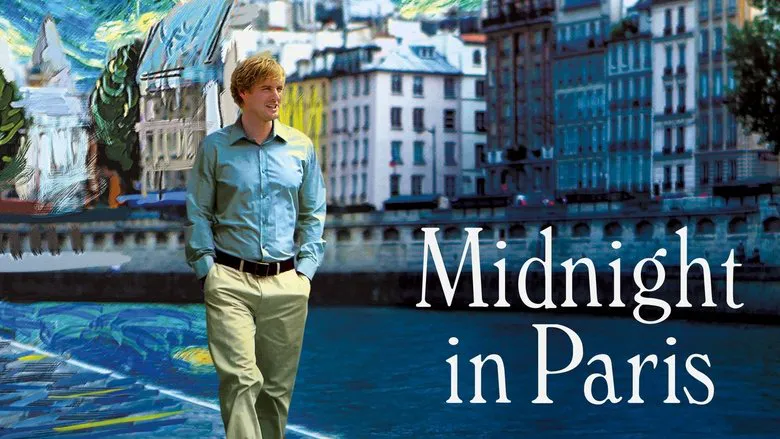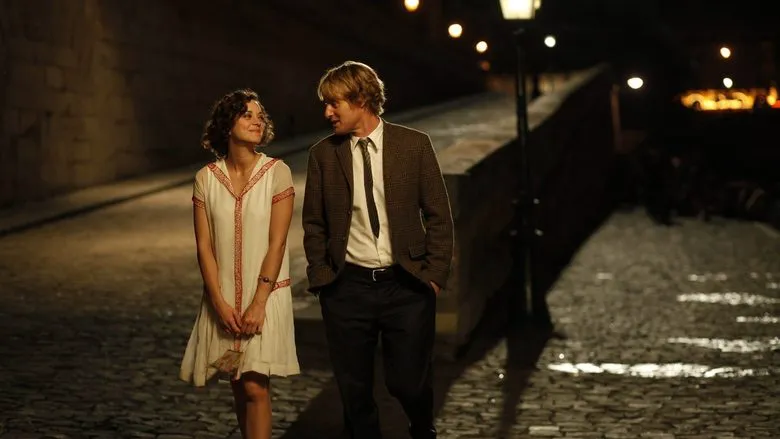A Love Letter to the Past: Expanding on “Midnight in Paris”
Imagine receiving a postcard from the City of Lights, playfully signed, “Woody was here.” Woody Allen’s “Midnight in Paris” evokes precisely that feeling – a whimsical, romantic comedy that transcends mere entertainment, offering a meditation on nostalgia, art, and the allure of a bygone era.
The film centers on Gil Pender (played by Wilson), a Hollywood screenwriter grappling with his creative aspirations. He finds himself in Paris with his decidedly unromantic fiancée, Inez (McAdams). While Inez is absorbed by thoughts of Malibu home renovations and diligently checking off Parisian tourist landmarks, Gil yearns for a different experience: to live a simpler life under a Parisian rooftop, to wander through the rain-kissed streets, and, most compellingly, to immerse himself in the vibrant artistic atmosphere of the 1920s. A twist of fate occurs one evening, a vintage Peugeot materializes and unexpectedly transports him to a dazzling soirée where he finds himself face to face with literary icons of the Lost Generation, including Scott and Zelda Fitzgerald.
 Gil experiences the magic of 1920s Paris.
Gil experiences the magic of 1920s Paris.
An Incongruous Ensemble in the City of Dreams
Paris, often hailed as a “poet’s dream,” sets the stage for a collection of characters who, nevertheless, seem fundamentally misaligned. Gil finds himself increasingly consumed by his reverie of the 1920s, painstakingly wrestling with his novel while simultaneously succumbing to trademark Allen-esque bouts of neuroticism and self-doubt. Meanwhile, his fiancée, Inez, is strongly attracted to Paul, a pedantic and pretentious Sorbonne academic. Her behavior becomes more and more annoying. Adding another layer of complexity to the narrative is Adriana, a mesmerizing muse from the past (played by Marion Cotillard), seeks passion for Gil but also distracted by past figures…
 Gil and Adriana share a moment amidst the Parisian charm.
Gil and Adriana share a moment amidst the Parisian charm.
Allen’s Playful Satirical Touch
Beneath the surface of romantic complications, Allen appears more interested in seizing the opportunity to deliver clever satirical jabs at celebrated figures such as Dalí, Buñuel, and the Fitzgeralds. He meticulously weaves them into scenes with almost encyclopedic detail. The film’s core message revolves around the notion that romanticizing the past and pining for a supposedly superior era is ultimately a misguided pursuit. In typical Allen fashion, the romantic idealist in Gil prevails over the anxious hypochondriac.
 A humorous portrayal of Salvador Dali.
A humorous portrayal of Salvador Dali.
The Enticing “Grass is Always Greener” Syndrome
Gil’s fervent desire to remain in Paris underscores the timeless appeal of the “grass is always greener” phenomenon. Allen’s characters, in films like “Hollywood Ending,” once dreamed of Paris. Yet, this subtle act of defiance suggests that Allen’s extended sojourn throughout Europe may simply be a prelude to an eventual return to the familiar comfort of Central Park, implying that no other place can genuinely rival the unique essence of 1970s Manhattan.